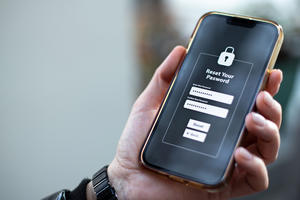As businesses are constantly adapting to these unprecedented times, with many employees working from home, the ability to remain connected is crucial.
We’re relying more than ever on technology and online services, so we need to make sure we stay secure while working remotely.
The media, our inboxes and mobile alerts are all related to COVID-19. Attackers know this is a worrying and overwhelming time and are taking advantage of our need for information.
Protecting your business
According to Microsoft, hackers have launched coronavirus-related cyberattacks in 241 countries and, each day, 60,000 emails contain malicious attachments or URLs.
Businesses must make sure their employees are protecting computer-based equipment and being extra vigilant when receiving emails.
Here’s some tips on how to stay safe when working from home
- Keep your PC up to date – Enable automatic updates and restart your device when you’re prompted.
- Install an antivirus – If you’re using your own personal computer, make sure you have an antivirus installed. There’s lots of free tools available such as Avast, Windows Defender and Bitdefender.
- Change your Wi-Fi password – Make sure you’re using a different password than the one given to you by your provider.
- Use secure passwords – Use unique passwords for all of your different logins and a password manager to store them safely, such as LastPass, 1Password or Firefox Lockwise.
What to look out for in emails
- Does the sender look suspicious? Check the email carefully, as it might just have a small spelling mistake that could go unnoticed.
- Does the email contain lots of links or attachments? Never click on a link or open an attachment if you’re not sure what it is. Links to look out for will often contain special characters instead of letters.
- Do you recognise the contents of the email? Phishing emails are usually badly written with spelling and grammar errors. Look out for any negative consequences and pressing timeframes too.
- When was the email sent? If a work email was sent in the early hours of the morning, it may be one to be wary of. Try giving the sender a call to check before you click on anything.
- Is it asking for personal data? Online service providers, such as your bank, will never ask you to verify your account or personal information via a message.
Learn more
You can find further news, information and advice about cyber-security by visiting:


